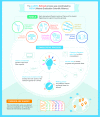malERA: An updated research agenda for malaria elimination and eradication
- PMID: 29190300
- PMCID: PMC5708604
- DOI: 10.1371/journal.pmed.1002456
malERA: An updated research agenda for malaria elimination and eradication
Abstract
Achieving a malaria-free world presents exciting scientific challenges as well as overwhelming health, equity, and economic benefits. WHO and countries are setting ambitious goals for reducing the burden and eliminating malaria through the "Global Technical Strategy" and 21 countries are aiming to eliminate malaria by 2020. The commitment to achieve these targets should be celebrated. However, the need for innovation to achieve these goals, sustain elimination, and free the world of malaria is greater than ever. Over 180 experts across multiple disciplines are engaged in the Malaria Eradication Research Agenda (malERA) Refresh process to address problems that need to be solved. The result is a research and development agenda to accelerate malaria elimination and, in the longer term, transform the malaria community's ability to eradicate it globally.
Conflict of interest statement
AD is a member of MPAC (Malaria Policy Advisory Committee). BFH is a member of the MESA (Malaria Eradication Scientific Alliance) Strategic Advisory Council. SIH is funded by grants from the BMGF (Bill & Melinda Gates Foundation), the Wellcome Trust, and the Fleming Fund. AMN is a member of the WHO malaria Surveillance, Monitoring and Evaluation Technical Experts Group and is co-chair of the Roll Back Malaria Monitoring and Evaluation Reference Group. AMN is also a member of the Editorial Board of PLOS Medicine. FOO is supported by a Wellcome Trust Intermediate Research Fellowship. RS receives funding from the BMGF and is a member of the MESA Strategic Advisory Council. MT declares that he is a member of the MESA Steering Committee, chair of the Scientific Advisory Group (SAG) of WHO/GMP on Malaria Eradication and was a member of MPAC until 2016. TW is a non-executive director of Kymab. EAW is on the Scientific Advisory Board of the Tres Cantos Open Lab Foundation. EAW receives funding from the BMGF, Medicines for Malaria Venture, NIH, and serves on the Scientific Advisory Board of the Tres Cantos Open Lab Foundation. DFW receives funding from the BMGF. PLA is Director of the WHO Global Malaria Programme, a member of the MESA Steering Committee and holds grants from the BMGF. KW is a member of the MESA Secretariat. RR is the Chair of the MESA Steering Committee and is Principal Investigator on the MESA grant from the BMGF. RR is the ExxonMobil Scholar in Residence at the Harvard T.H. Chan School of Public Health.
Figures



References
-
- Alonso PL, Brown G, Arevalo-Herrera M, Binka F, Chitnis C, Collins F, et al. A research agenda to underpin malaria eradication. PLoS Med. 2011;8(1):e1000406 doi: 10.1371/journal.pmed.1000406 - DOI - PMC - PubMed
-
- World Health Organization. Global technical strategy for malaria 2016–2030. Geneva: WHO; 2015. Contract No.: 17 March.
-
- Roll Back Malaria Partnership. Action and investment to defeat malaria 2016–2030: for a malaria-free world Geneva: WHO; 2015 Available from:http://rollbackmalaria.com/. Date accessed 2017 Nov 1.
-
- End malaria 2040. From Aspiration to Action: What Will It Take to End Malaria?; 2016.
-
- World Health Organization. WHO Strategic advisory group (SAG) on Malaria. Eradication of malaria, Report by the Secretariat. Geneva; 2017 18.05.2017.
Publication types
MeSH terms
Substances
Grants and funding
LinkOut - more resources
Full Text Sources
Other Literature Sources
Medical

